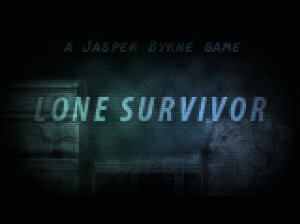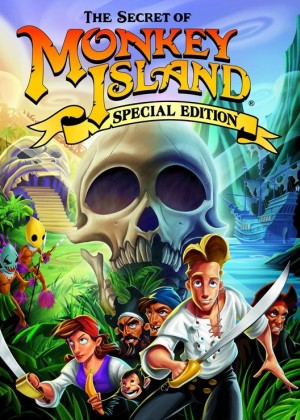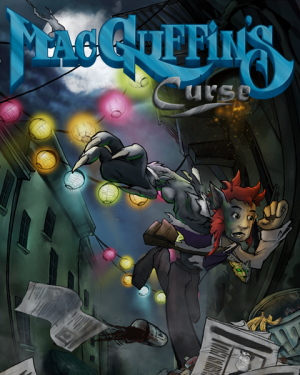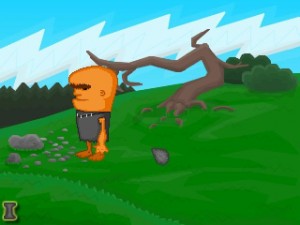Why most adventure games could use a better premise
Opinion & Special Features
Musings on the adventure genre, developer columns and other special features
Time for a confession: I have a love-hate relationship with adventure games. At their best, they have the power to completely enthrall me with their stories, characters and worlds. At their worst, adventure games can send me spiraling into depression. Perhaps you feel similarly conflicted.
If you often play adventure games, you are undoubtedly aware of that thin line between enjoyment and frustration. Personally, my level of enjoyment depends most on how strongly the game maintains the illusion of participating in a world in which my actions make sense. Too many contrived obstacles or artificial constraints and the happy illusion dissolves like a shutdown in The Matrix, laying bare the cold and mechanical underlying puzzle structure.
What got me thinking about this again was a forum post by Jake Rodkin from a while ago. “It really frustrates me that so much of adventure gaming is about impeding the plot by telling you ‘no’ over and over,” he wrote. “If your game is nothing but a good story that is impeded repeatedly by people telling you that you can't progress to the next point in the story because they're an unreasonable bastard, or because some piece of machinery is broken... there's only so much of that you can take before wanting to just sort of chuck your PC out the window.”
Haven’t we all at some point felt like chucking the PC out the window?
I always believed poor puzzle design to be the main cause of such frustration. That is, if just the individual puzzles are designed more cleverly and more sensibly, the game will be more fun. If each puzzle in and of itself is entertaining and not frustrating, you’ll keep playing. Right?
Well... right. But maybe that's not the complete answer. I've noticed that sometimes a puzzle from one game can get completely chastised by the player community, while that exact same type of puzzle in another game receives no complaints at all. It seems the quality of the puzzles is one factor, but their appropriateness within the game is another.
So maybe the potential for player frustration is not just down to puzzle quality, but the overall cohesiveness of a game. The adventure games that have personally entertained me the most are usually very strongly about something. These games have a strong conceptual core that make me more easily accept and enjoy the obstacles they throw at me.
That sounds pretty vague, so let me try put that another way. Suppose puzzles are like trees that only grow in good soil. Well, many games simply don't provide good soil for their puzzles to grow in.
The story premise might actually be an underrated ingredient for success for adventure games. There's currently a widespread problem afflicting the genre that I'd like to call the "man solving a mystery" syndrome. This game design disorder seems to manifest itself whenever a game is lacking a strong core concept. So many adventures are now fundamentally about "a man solving a mystery" that it makes my head spin. Sometimes the story has to do with ghosts, or maybe a conspiracy, or murder -- but that doesn't really matter. It boils down to your character being in a location and going through all the adventure game mystery detective hoops, because... well, because it's an adventure game, and it's somehow naturally expected of you to methodically mow down all those puzzles and plot points.
Weak premises like that often result in even more generic puzzles about breaking into doors, sliding newspapers under doors, breaking into safes, piecing messages together, using astrological signs or hieroglyphs... and I could go on for a while. Of course, despite the protagonist having to Solve The Mystery™, he or she will sometimes be hopelessly uncommitted, often claiming they "can't do that" because their hands would get dirty (or something equally silly).
On the other hand, some adventure games have strong core concepts around which everything else clicks into place. Phoenix Wright is a good example. You're not just a man out to solve a mystery for some reason (even though there are mysteries). You're quite simply an attorney. And an attorney does attorney-like things. It makes sense to cross-examine and raise objections because that's the sort of thing you're supposed to do within the fiction of the game. Phoenix Wright often makes me forget I'm playing an adventure game because it's about something tangible and specific first and foremost, and an adventure game second.
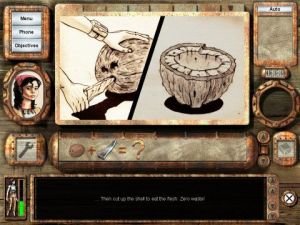 |
In Return to Mysterious Island, all the puzzles fall under the umbrella of the story premise. |
Let me offer another example that’s a bit less obvious. While I'm not a terribly big fan of solitary exploration games, I'm very fond of Return to Mysterious Island. Its initial premise rings loud and clear: you are stranded on an island and without food or water you will die. This premise pulls puzzles into place like a magnet. If you are stranded, what do you do? You try to make fire or a knife, you hunt for animals and you look for edible plants. The puzzles in Return to Mysterious Island aren't an arbitrary collection, they're all related to the main concept, which imbues the game with a sense of purpose. (There is also a mystery on the island to uncover, but it is revealed gradually as if the protagonist found it by accident.)
The core concept of Return to Mysterious Island also informs its game design. For instance, there's a health indicator that is used to show your progress. And some objects such as coconuts appear more than once, which make sense as you can naturally expect there to be at least more than one such item on the island. These design decisions fit this specific story, and that makes the game as a whole feel unique.
Some developers deliberately look for these kinds of conceptual hooks. In my interview with Hal Barwood on Mata Hari you could read how the core concept of "you are a spy and a dancer" can spawn countless of interesting puzzles and ideas that really fit together. Similarly, when Bill Tiller last presented A Vampyre Story he explained that LucasArts always designed games around the main character. If you want to solve puzzles in Monkey Island, it helps to think like a pirate. Whereas in a game about bikers, like Full Throttle, it makes sense that you can slam people into bars or drive motorcycles. It seems the designers at LucasArts always understood the importance of giving things in an adventure game a reason to exist.
There are of course many other elements that make a game good or bad, which I'm not trying to downplay here. But it seems the games that have such a strong core have a much bigger chance of turning into more than the sum of their parts.
 |
When I played Runaway, I often wished the story of the game stayed closer to its title. |
One game that I consider to be a missed opportunity in this regard is Runaway. I should say I have much respect for the developers and the success they achieved, but I’ve always felt that its story and puzzles were largely disjointed despite the game having an absolutely fantastic title to work from. What if Runaway was really fundamentally about running away? Like staying one step ahead of your pursuers, covering your tracks, finding places to hide or going off the grid? It could still have been a comedy, but one with a stronger sense of direction.
I hope that in the coming years, fewer games will be caught by the "man solving a mystery" syndrome. Perhaps developers can find more interesting foundations for their games. Because then instead of banging their heads against the wall trying to come up with the next great individual puzzle -- and then another one, and another one, until the game has enough obstacles in place -- the ideas for puzzles can emerge naturally from the concept they’ve chosen. Not only would this probably produce a much better game overall, but the puzzles resulting from this approach might just be the ones that are most likely to keep people entertained.
This article originally appeared in Adventure Gamers now-defunct blog.





